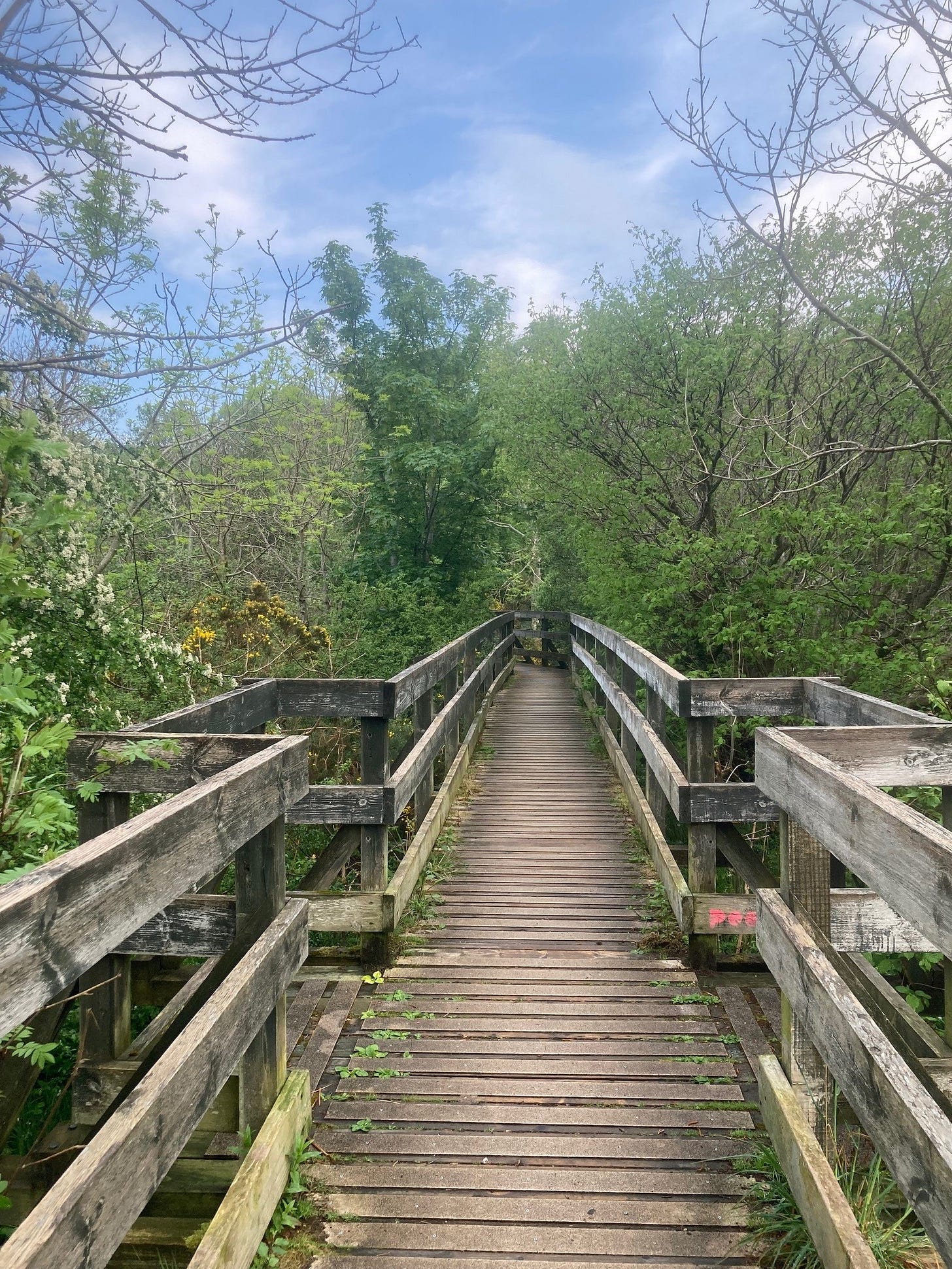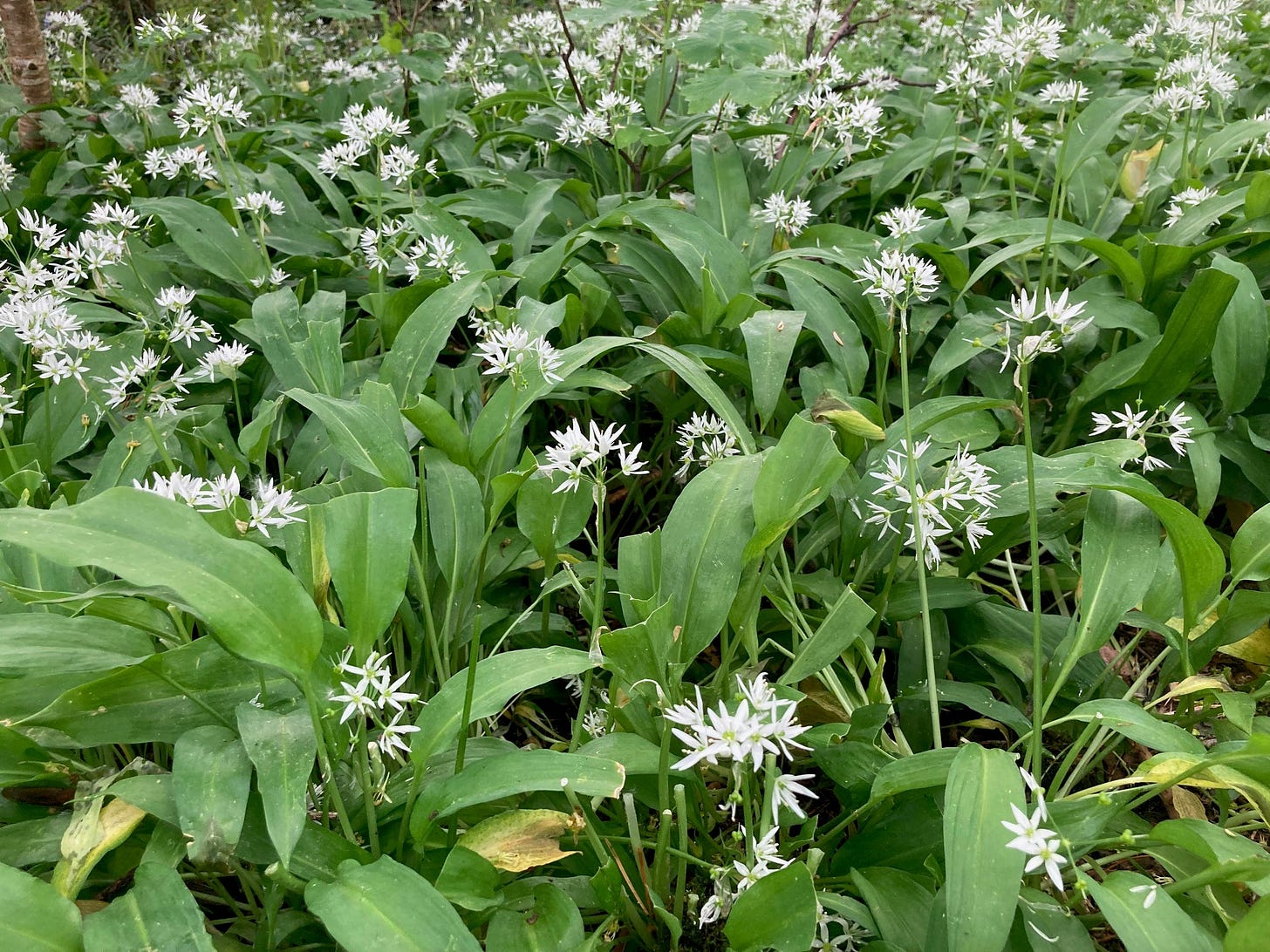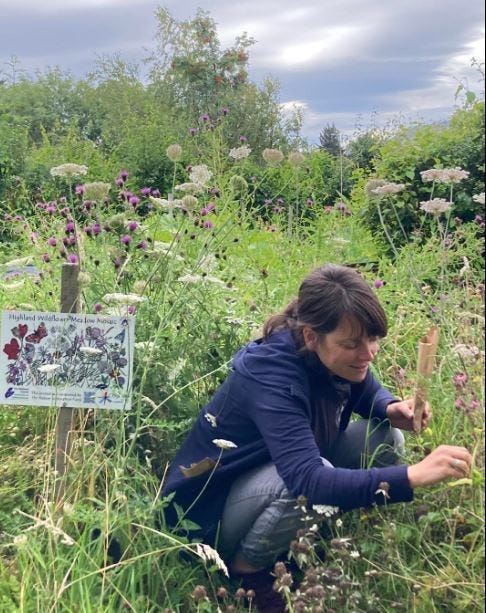
My daily local walk that takes me across the Ullapool River is one of my favourites, a constantly changing environment that I am connected to. It is a riverside walk full of trees, wildflowers and all the wildlife that benefits from these habitats. I just love it.
This morning was an extra sensory experience. The warm weather followed by heavy rain released the most extraordinary scents. With each inhale I felt it reach my brain and bring me joy. And, because of the variation in plant species, the scent kept changing and mixing.
I found myself thinking about what smells do to our brains, and how, like all elements of the natural world we might benefit from them without being fully aware of their positive effects.
Petichor
You may have heard the word ‘petichor’ before which was, first described by Australian scientists in the 1960s to explain the smell of the rocks, earth and soil after rain.
The Met Office website describes it as:
‘Petrichor is the smell of rain. The word comes from the Greek words 'petra', meaning stone, and 'ichor', which in Greek mythology refers to the golden fluid that flows in the veins of the immortals.’
That second part of the word, ‘petra’ may seem dramatic but inhale the scent and you can imagine some superpowers might be racing through you, not making you immortal perhaps, but certainly making you feel very alive and in the moment.
But if petichor is the smell of rain on the earth, there will be variations on this whether you are in Australia or the west coast or the east coast of Scotland. It must have been an important element of life in the past - of conscious and subconscious information gathering.

Aromatherapy?
The science behind petichor is that water disperses bacteria spores in the soil, and volatile oils from plants and trees are then dispersed by the water.
But why would this make it such a positive scent for us? Some people think that might be because water is important and that historically the smell of rain meant there would be water to drink and for crops. Others suggest it is a nostalgic, that it triggers memories of childhood, playing in the outdoors.
There are several studies to show that when digging with your bare hands , your skin can absorb bacteria (Mycobacterium vaccae) from the soil which can benefit mental health by triggering serotonin release.

Perhaps there is a similar relationship when breathing in the smell and bacteria that are released when rain hits the ground?
Aside from petichor, which generally relates to rocks and soil, the scent from flowers also increases. This is because the dry plant parts are broken by the falling rain and because when it is really dry the plants metabolism slows down and so an increase in the smell could be related to increased metabolism.
I came across one science paper that explained that smells are unique amongst the senses in how they are interpreted by the human brain and emphasised the multisensory benefits to our health and wellbeing.

Sensory Diversity is Part of Biodiversity
Whatever the reason for us enjoying natural scents; nostalgia, bacteria, immortal gods, I find myself very glad to have this kind of sensory diversity. It assures me, once again that biodiversity is key to life in obvious and subtle ways and that the word ‘biodiversity’ means far more than just counting the number of species in one place, it is multi-layered, including layers of scents.
My top 5 spring scents on the riverside walks in Ullapool
1. Gorse/whins – blooming in yellow in pockets all around the river this bush reminds me of lambing as a child and coconut sun cream all at the same time. It is sweet and heady.

2. Bird cherry – I felt as though it could knock me out with its blooms releasing a scent to attract insects. Indeed, it was full of bees.
3. Wild garlic or ramsons – in full white bloom just now sprinkling the floor of the woodland with its pungent smell.
4. Sycamore flowers sweet-smelling. The scent of this coupled by the buzz of bees is a scent and sound to behold.
and finallys 5. Petichor. Fresh and strong, that general smell of bacteria spores and volatile oils released when the rain hits the ground.
Jenny Grant is the dedicated High Life Highland Countryside Ranger for Wester Ross, operating out of Ullapool Library. With a profound commitment to community engagement, Jenny concentrates her efforts on building connnection between the community and their natural environment. Her work is driven by an unwavering passion for the natural world, encompassing a broad spectrum of interests from local flora and fauna to broader ecological systems. Jenny views learning about the Highland's unique ecology as a lifelong journey, one that she enthusiastically shares with others. Her role not only involves conservation efforts but also educating and inspiring the public about the importance of preserving the natural beauty and biodiversity of the Highlands.





